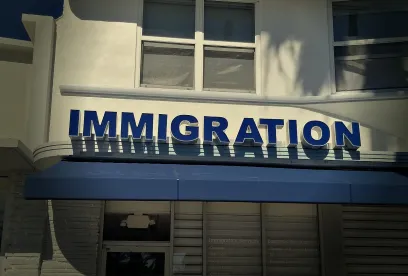USCIS confirmed that its planned furlough of 70% of its workforce (13,400 employees) will be postponed at least until the end of August. The ostensible reason for the furlough was a budget shortfall, even though USCIS is a fee-based service that historically has covered costs.
The furlough announcement, when coupled with the anti-immigration agenda from the White House, caused some to question the claim that USCIS had of a $571-million deficit for FY 2020. Agency and indeed recent reports show that USCIS will end the fiscal year with a budget surplus large enough to keep employees on the payroll for now. In the meantime, Congress will have to time to act to provide emergency relief for FY 2021. As of July 10, 2020, the surplus was reportedly $121 million.
Senators Patrick Leahy (D-Vt.) and John Tester (D-Mont.) wrote to Acting Secretary of Homeland Security, Chad F. Wolf, when they learned of the surplus, which was in “stark contrast” to the previous deficit prediction. The Senators implored the agency not to put more American jobs “on the line” at this time of “unprecedented unemployment.” They made it plain that it was not just the employees who would be harmed.
[T]housands of United States Citizens, employers, and students rely on USCIS work, including members of the military. The loss of these valuable jobs will also cause hardship to the communities where these federal workers live and work – communities already struggling with the pandemic.
The USCIS Deputy Director for Policy, Joseph Edlow, stated that the changed forecast, occurring after an investigation, is due to increased revenue over the past few weeks. This revenue could be the result of Cap H-1B filings and the opening up of premium processing. At the end of March, USCIS suspended premium processing. On June 1, 2020, the agency slowly started resuming it. By June 22, 2020, premium processing became available for all I-129 petitions, including cap-subject petitions. At $1,440 for each petition, this resumption could account, at least partly, for the increased USCIS revenues. Given the current processing delays and the pent-up demand for premium processing, an increase in revenue could have been expected – and the fear of an almost-total halt in immigration processing alleviated.
USCIS union members (members of the American Federation for Government Employees) speaking to reporters explained that while the pandemic has decreased petitions, the agency has been crippled by “previous policy decisions that have restricted legal immigration.” In 2018, there was 17% decrease in petitions and applications. Since then, the public charge rule and increases in vetting, denials, requests for evidence, interviews, delays, and backlogs have led individuals and companies to file fewer petitions and applications. For some companies, it has become easier and more predictable to move jobs out of the United States into more welcoming environments. The impact of such a move is the opposite of what is needed in the U.S. economy’s recovery.
Senator Leahy expects to address the USCIS’ 2021 deficit with the next COVID-19 relief package.




 />i
/>i

